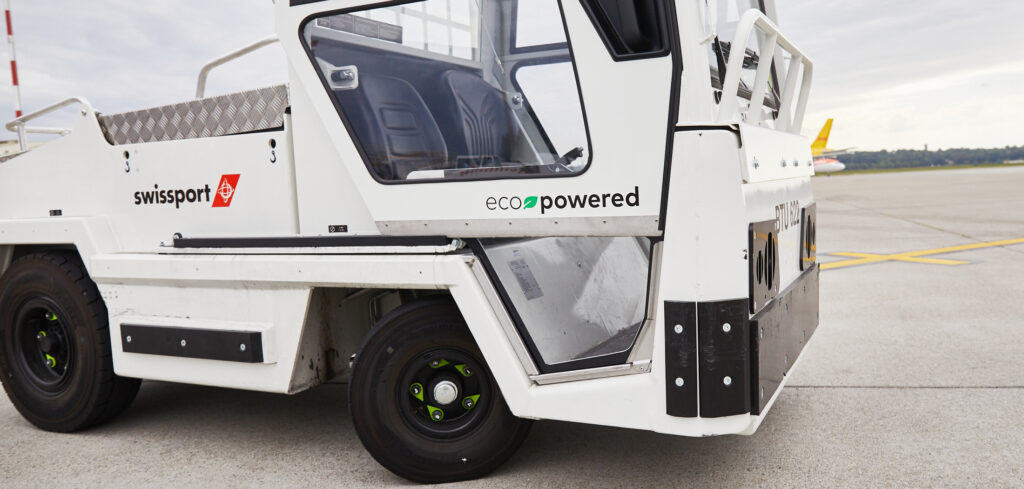Swissport International has set goals for the decarbonization of its operations – including a commitment to reduce its CO2 emissions by at least 42% by 2032 – and for staff diversity and inclusion.
To achieve this, the company plans to increase the share of electrically powered vehicles in its fleet to at least 55% over the same period. By 2025, disposable plastic tableware will be eliminated at all airport lounges operated by Swissport subsidiary Aspire Lounges and replaced with recyclable or reusable products. In air cargo handling, Swissport plans to introduce mandatory waste-avoidance as part of its waste-management policy, to be rolled out at all of its 120 air cargo centers by 2027.
Overall, Swissport’s sustainability agenda includes: the decarbonization of its operations with a focus on introducing more electric vehicles; the avoidance of waste in all areas of the business, from cargo centers to airport lounges; and efforts to further improve the company’s attractiveness as an employer, not least by means of a leading diversity and inclusion agenda.
Additionally, Swissport has noted that across its business units, one-third of all employees are women, which exceeds IATA’s target of 25%. The same share has been reached in its global management team, the company’s highest executive level. Currently, Swissport is putting its focus on the leadership levels below the C-level, initially aiming for a proportion of at least 25% women there. Within five years, Swissport intends to increase the share of women in management to 40%. To make aviation ever safer on the ground as well, Swissport also intends to work toward continuous progress in the areas of work-related injuries and damage to its customers’ aircraft, as well as their and its equipment.
Swissport plans to promote social community outreach programs at all of its locations. These include initiatives in the areas of health care, sports, charity, environmental protection, and career development. In Tanzania in East Africa, for example, Swissport supports the country’s future aviation talent with a training facility that provides young aviation aspirants the opportunity to start their careers. Across locations in Europe and the USA, Swissport organizes community cleanups and events to promote eco-conscious practices.
This ESG goal has been aligned with the group’s growth plan in an effort to support its long-term development and success. Nadia Kaddouri, Swissport’s chief strategy and sustainability officer, said, “More and more airline customers and airport partners are demanding fleets on the ground that are emission-free. At an increasing number of airports, Swissport will offer it to them.”
Warwick Brady, president and CEO of Swissport International, said, “As a signatory to the UN Global Compact since 2011, Swissport committed to its responsibility for the planet and society. And as the global market leader in aviation ground services, it is incumbent upon Swissport to set the benchmark and drive change in this area, too. We are committed to contributing our share in helping to make a more sustainable aviation future a reality. For us, sustainability goals are not a compulsory exercise, but an opportunity that contributes to long-term value creation. Sustainable service delivery also benefits our customers and their corporate profiles.”

